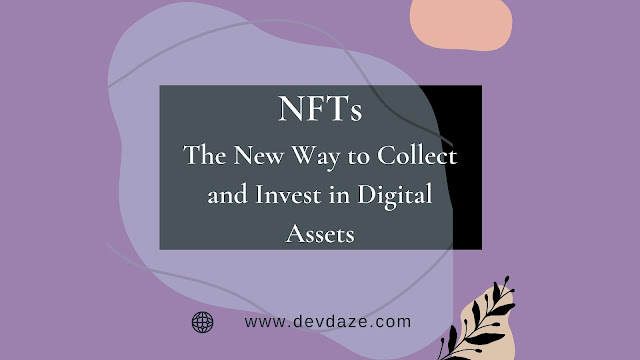If you’re not familiar with non-fungible tokens (NFTs), you’re missing out on one of the fastest growing markets in blockchain and crypto today. NFTs allow users to collect and trade digital assets, similar to how rare baseball cards, paintings, or vintage cars can be traded today.
Some popular NFTs include CryptoPunks and Bored Ape Yacht Club — both projects that have already achieved massive adoption by investors in the blockchain space.
What Are Non-Fungible Tokens?
There are two basic categories of digital assets on a blockchain network — fungible tokens, which represent one part of a whole (like gold, ether or any currency), and non-fungible tokens (NFTs), which represent something unique.
For example, you could own 1 gold coin or 1/1 million ether coins — both are fungible assets since they’re interchangeable. But you could also own a CryptoPunk or a yachting club membership; those things are unique, so they’re non-fungible assets. In short, NFTs represent digital ownership of an asset that can be traded between users on any blockchain network.
How Can I Use Them?
Non-fungible tokens make it easy for you to collect digital assets. As an avid gamer, you might enjoy getting some CryptoPunks on NFT game like Cryptokitties. This not only makes it easier for you to collect your favorite characters but also lets you make money off of them. In fact, Cryptokitties became one of Ethereum’s most popular DApps when it launched last year; more than $22 million was spent on virtual cats. Plus, there are plenty of other ways these smart contracts can be used.
How Do They Work?
NFTs are designed to be used more like digital collectibles. While some projects may be limited on what they can do with their NFT, often times there’s no limit to what a user can do with them. In fact, NFT games have even started cropping up where you can buy NFTs with cryptocurrency that look like other non-fungible tokens, and then trade them using smart contracts for different assets.
In CryptoPunks for example, you could collect 1000 digitally designed punks which you could use as cryptocurrency (albeit minor cryptocurrencies) or you could use them to try your hand at a real-world game of Pogs called CryptoPog — yes it’s exactly what it sounds like!
What Blockchain Do They Live On?
Most projects are based on either Ethereum or EOS. If you have neither of these coins, it might not be worth acquiring them just for an NFT, but there’s an exciting trend emerging where some NFT games will actually pay dividends in a different cryptocurrency such as XRP or BTC. You may need to own ETH or EOS tokens, but that’s a small price to pay if you want one of these super-rare digital assets!
Buying/Selling Platforms
A platform is a place where you can collect, buy, or sell digital assets of all sorts. There are two main types of platforms that exist today: centralized and decentralized. Most are actually centralized, which means they’re controlled by a single company or organization—think eBay or Amazon, for example.
Decentralized platforms operate using blockchain technology (the same tech that powers Bitcoin) which essentially means there is no central authority monitoring or managing your transactions; each user owns their own data and determines what happens with it.
This appeals to many because a decentralized system incentivizes users to add value by creating content rather than simply consuming it.











No comments:
Post a Comment